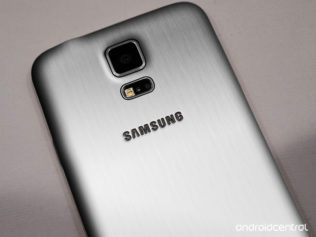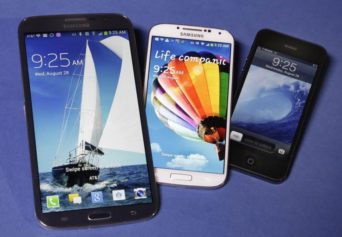
The device would essentially put the key capabilities of a smartphone into a watch, requiring a SIM card and likely a data and voice plan, too. Samsung’s been more than happy to experiment with the shape of smartphones, often to ridiculous results, and it sounds as though this watch will be just another extension of that. That said, it’s a logical area of experimentation as the smartwatch market begins to emerge.
One of the biggest complaints with Samsung’s existing smartwatches is their overbearing reliance on the phone that they’re tethered to, so building a data connection right in would certainly resolve that. Whether people will want to pay for cellular service to a watch, should that be required, is another question. This also won’t be running Google’s impressive-looking Android Wear watch operating system, as many might hope. Instead, it’ll reportedly be running Tizen, like the Gear 2.
If Samsung really does release the watch in the next several months, that would mark its third smartwatch in under a year, continuing a process of aggressive iteration chased by the spectral threat of a genre-defining smartwatch from Apple coming along in the near future. The Journal reports that Samsung is aiming for a June or July unveiling and that it’s already speaking with telecoms in the U.S., Europe, and South Korea about carrying it.
source: theverge.com


